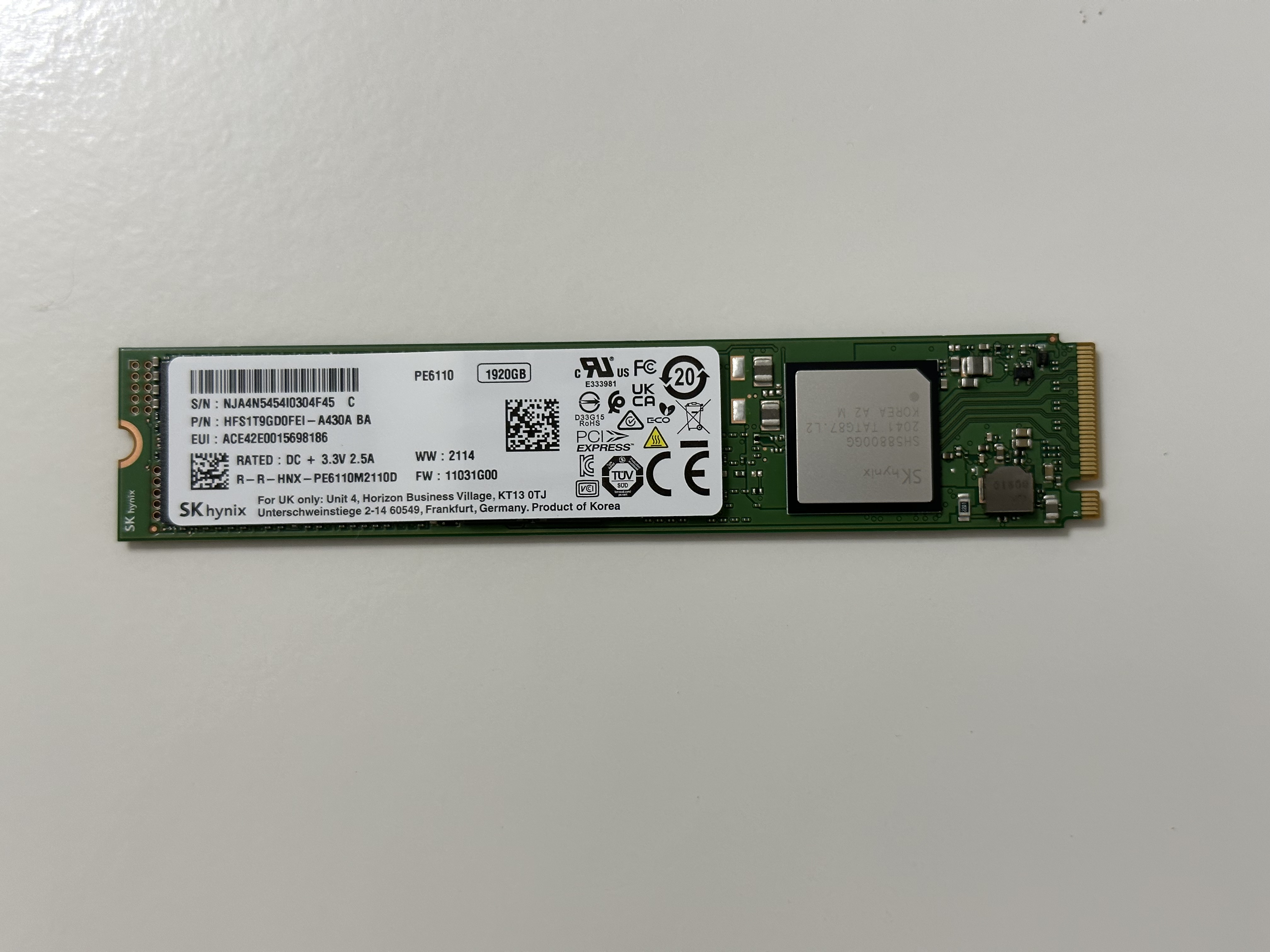SK Hynix PE6110 1.92TB
Recently I bought an m.2 SSD made by SK Hynix, the PE6110 in their enterprise entry-level lineup. The PE6110 is offered in 3 capacities, 960GB, 1920GB, and 3840GB. Here I have the 1920GB version. On the PCB front, we can see clearly the controller, printed with the SK Hynix logo. The NAND flash chips are soldered both on the back and on the front under the product label. On the back side, there’s also the single RAM chip, 2GB LPDDR4 3733. Under the product label, there’s also a good number of tantalum capacitors which will offer excellent power loss protection.
As the SSD is in 22110 form factor, most motherboards including mine are incompatible as 2280 is the most widely supported and popular m.2 SSD form factor. As a result, I also bought an m.2 to PCIe socket adapter that supports 22110. I also put on an aluminum heatsink on the front to help it dissipate heat. However, the capacitors for power loss protection are taller than both the controller and NAND chips, and are obstructing the proper installation of the heatsink, so it’s making poor contact with the heat-generating components.
First Boot - SMART Info
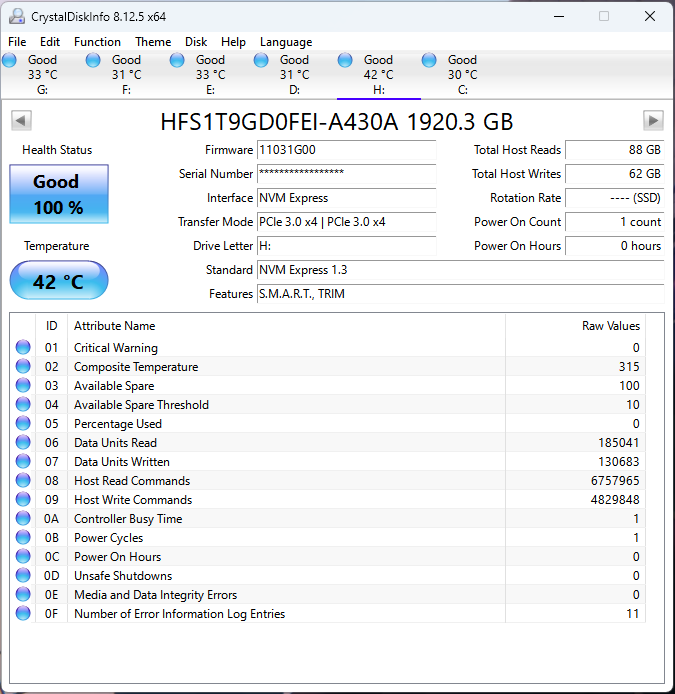
First time booting with the PE6110 installed, there was no trouble at all, and the initialization process of the SSD was quick and simple. After performing some benchmarks, I checked its SMART data. Sure enough, the drive was new and healthy. The temperature is higher than my other drives, but still acceptable. It idles at 10 degrees Celsius higher than my other NVMe SSD. With a power consumption of up to 7.0W during write operation, it shouldn’t be as big of a problem as for example Samsung’s PM983 which draws up to 8.7W during write. Hopefully, the janky heatsink won’t backfire on me in the future.
Benchmarks: Crystal Disk Mark
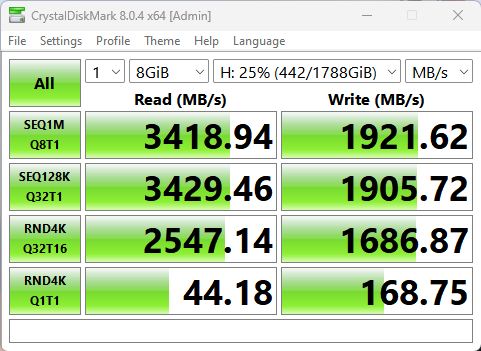
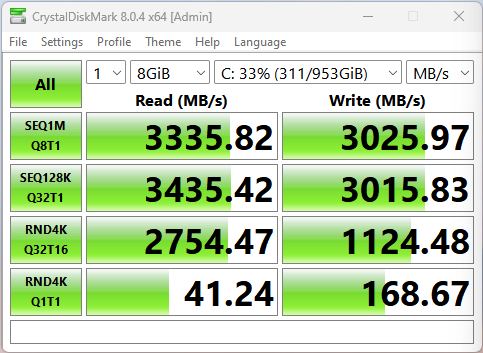
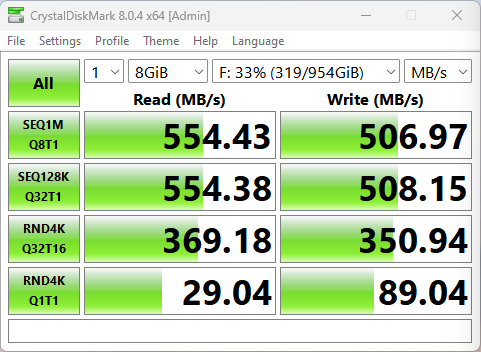
The official advertised sequential read/write speed is 3200/1900 MB/s, and random read/write at 185k/74k IOPS, as displayed on their official website: Enterprise SSD | SK hynix.
The benchmark revealed that SK Hynix’s claim on their SSD performance is accurate, with actual sequential read/write speed of 3400/1900 MB/s, it compares well with mainstream PCIe 3.0 SSD. Though the write speed might seem to be lower than consumer SSDs, it should not be seen as a disadvantage. As enterprise SSDs focus more on reliability, endurance, and long-term performance, they’re usually not set to use SLC cache, which boosts performance at the expense of depleting drive life faster.
The provided drive writes per day (DWPD) is 1, which means 1.92TB of data can be written to the SSD every day for the whole warranty period. That translate into 2.1 petabytes written (PBW) for 3-year warranty or 3.5 PBW for 5-year warranty. That is more than what most consumer SSDs offer. For instance, the Samsung 970 EVO Plus 2TB is advertised with 1.2 PBW over a warranty period of 5 years. The endurance of the PE6110 is definitely more than any consumer’s needs.
